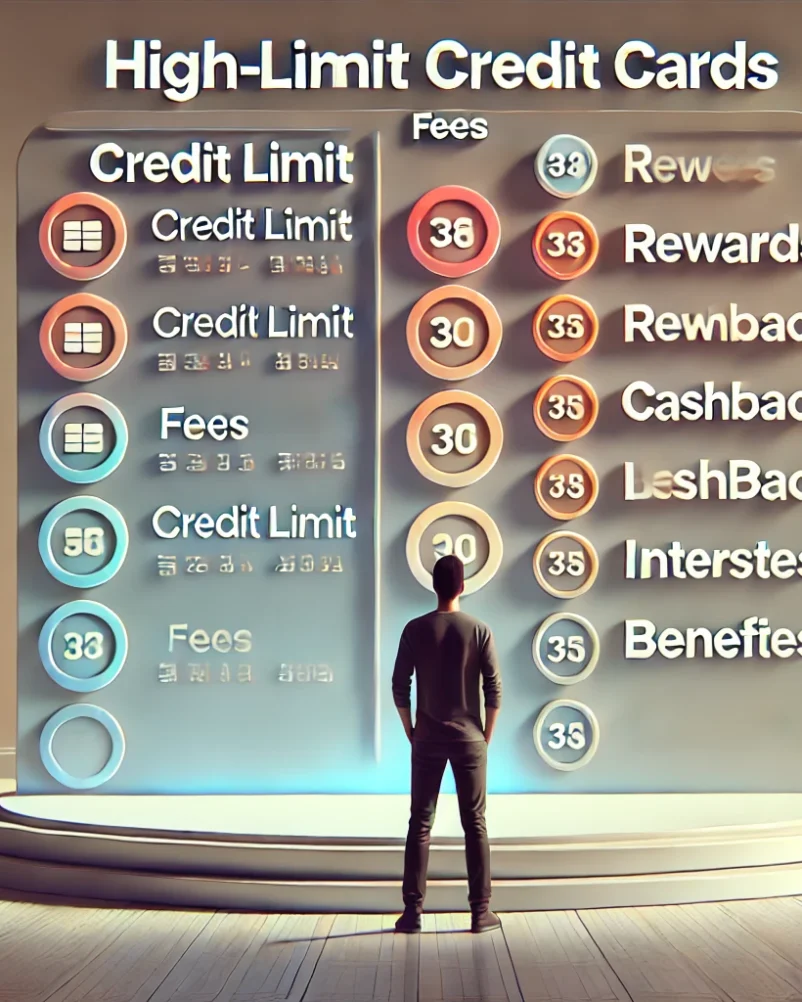Anúncios
Did you know that securing financing is a crucial step in acquiring a vehicle for many individuals?
However, your credit score plays a significant role in the approval process and the terms you receive.
If you have a low credit score, you might be wondering:
“Is it possible to obtain an auto loan despite my credit challenges?”
This article aims to guide you through various financing options,
focusing on strategies for those with low credit scores.
Whether you’re planning to buy a new or used vehicle,
understanding your financing options
Anúncios
and how to improve your credit can help you achieve your goal of vehicle ownership.
Continue reading to discover how to navigate the auto loan landscape
and secure the financing you need.
1. Understanding the Auto Financing Landscape
1.1 How an Auto Loan Works
An auto loan is a financial agreement between a borrower and a lender,
where the borrower receives funds to purchase a vehicle
and agrees to repay the loan amount plus interest over a specified period.
Key components of an auto loan include:
• Loan Amount:
The total amount borrowed to purchase the vehicle.
• Interest Rate (APR):
The cost of borrowing, expressed as an annual percentage rate.
It can be fixed (remaining the same throughout the loan term)
or variable (changing based on market conditions).
• Loan Term:
The duration over which the loan must be repaid,
typically ranging from 24 to 84 months.
• Down Payment:
An upfront payment made by the borrower,
reducing the total loan amount and demonstrating financial commitment to the lender.
The vehicle itself usually serves as collateral for the loan,
meaning the lender can repossess the vehicle if the borrower fails to make timely payments.
This collateral reduces the lender’s risk,
potentially leading to more favorable loan terms for the borrower.
2 The Role of Credit Score
Your credit score is a crucial factor in determining your eligibility for an auto loan
and the terms you receive.
Lenders use your credit score to assess the risk of lending to you.
Here’s how your credit score influences your loan:
• Interest Rates:
Higher credit scores generally qualify for lower interest rates,
reducing the overall cost of the loan.
Lower scores often result in higher rates.
• Loan Approval:
A higher score increases the likelihood of loan approval,
while a lower score may lead to rejection or the need for additional guarantees.
• Loan Limits:
Your credit score can impact the maximum amount you can borrow.
Higher scores may allow for larger loan amounts,
while lower scores might restrict borrowing capacity.
Credit scores are typically categorized into ranges:
• Excellent (750-850):
Qualifies for the best loan terms, including low interest rates and high loan amounts.
• Good (700-749):
Generally eligible for favorable loan conditions,
though not as advantageous as excellent scores.
• Fair (650-699):
May face higher interest rates and stricter loan conditions.
• Poor (below 650):
Often require larger down payments,
higher interest rates, or a co-signer to secure a loan.
Understanding where your credit score falls
and how it affects your loan options is essential for making informed financing decisions.
3. Financing Options for Vehicle Purchase
3.1 Traditional Bank Financing
Traditional bank financing is one of the most common methods for obtaining an auto loan.
Banks offer a variety of loan products with competitive interest rates and flexible terms.
To apply for a bank loan, you typically need to provide proof of income,
a good credit history, and a down payment.
Advantages:
• Competitive Interest Rates: Especially for those with good credit scores.
• Flexible Terms: Options for different loan durations to fit your budget.
• Credibility: Established institutions with reliable customer service.
Disadvantages:
• Strict Approval Process: Requires a strong credit history and comprehensive documentation.
• Longer Approval Times: The process can be slower compared to other financing options.
3.2 Dealership Financing
Dealership financing is another popular option,
where the dealership arranges the loan on your behalf,
often through partnerships with banks or manufacturer financial services.
This can include promotional offers like low or zero-interest rates for qualified buyers.
Advantages:
• Convenience: Financing can be arranged directly at the point of sale,
simplifying the purchasing process.
• Promotional Offers: Potential access to exclusive deals and incentives.
• Flexible Packages: Customized loan packages tailored to your needs.
Disadvantages:
• Potentially Higher Rates: Some dealership financing options may have higher interest rates compared to traditional banks.
• Limited Choices: Tied to specific lenders or manufacturers, limiting your options.
3.3 Credit Unions
Credit unions are member-owned financial institutions that often offer lower interest rates
and more personalized service compared to traditional banks.
To qualify for a credit union loan, you must be a member,
which may require meeting specific eligibility criteria.
Advantages:
• Lower Interest Rates: Typically offer more competitive rates than banks.
• Personalized Service: More flexible terms and personalized loan conditions.
• Member Benefits: Additional financial products and services tailored to members.
Disadvantages:
• Membership Requirements: Must be a member to access loan products.
• Limited Availability: May have fewer branches or online services compared to larger banks.
3.4 Fintechs and Online Platforms
Fintech companies and online lending platforms have emerged as innovative alternatives to traditional financing,
offering streamlined applications and faster approval processes.
These platforms leverage technology to assess credit risk and provide loans quickly.
Advantages:
• Fast Approval: Digital processes allow for quick loan approvals and disbursements.
• Convenient Access: Apply for loans online from anywhere, without visiting a physical branch.
• Flexible Terms: Some platforms offer customizable loan terms to suit individual needs.
Disadvantages:
• Higher Interest Rates: Due to the increased risk, fintechs may charge higher rates,
especially for borrowers with lower credit scores.
• Less Regulation: Some online lenders may operate with fewer regulations,
requiring careful vetting to ensure legitimacy.
4. Strategies to Obtain a Loan with a Low Credit Score
4.1 Increase Your Down Payment
One effective strategy to secure an auto loan with a low credit score is to increase your down payment.
A larger down payment reduces the total loan amount, thereby decreasing the lender’s risk.
This can make your application more attractive,
potentially leading to better loan terms such as lower interest rates
and more favorable repayment periods.
Benefits:
• Lower Loan Amount: Reduces the overall amount you need to borrow,
making it easier to manage repayments.
• Better Loan Terms: May qualify for lower interest rates and longer repayment periods.
• Increased Approval Chances: Demonstrates financial commitment
and lowers the lender’s risk.
4.2 Seek a Co-signer
Having a co-signer can significantly improve your chances of obtaining an auto loan with a low credit score.
A co-signer with a strong credit history agrees to take responsibility for the loan if you default,
providing additional security to the lender.
Benefits:
• Improved Approval Odds: The lender is more likely to approve the loan knowing there is a reliable backup.
• Potentially Lower Interest Rates: With a co-signer, you might qualify for better loan terms,
including lower interest rates.
• Access to Higher Loan Amounts: May allow you to borrow more money than you could on your own.
Considerations:
• Responsibility: The co-signer is equally responsible for the loan,
and any missed payments will affect their credit score as well.
• Relationship Impact: Financial obligations can strain personal relationships if issues arise.
4.3 Secured Loans
Secured loans involve using an asset, such as your current vehicle or a property,
as collateral to secure the loan.
This reduces the lender’s risk, making it easier to obtain financing even with a low credit score.
Benefits:
• Higher Approval Rates: Collateral provides security for the lender,
increasing the likelihood of loan approval.
• Lower Interest Rates: Reduced risk often translates to lower interest rates compared to unsecured loans.
• Larger Loan Amounts: Ability to borrow more money due to the secured nature of the loan.
Disadvantages:
• Risk of Repossession: If you fail to repay the loan, the lender can seize the collateral asset.
• Asset Value: The value of the collateral must be sufficient to cover the loan amount.
4.4 Compare Different Offers
Comparing loan offers from multiple lenders is crucial
when seeking an auto loan with a low credit score.
Different institutions have varying criteria,
interest rates, and loan terms,
so shopping around can help you find the best possible deal.
Tips:
• Research Multiple Lenders: Explore options from banks, credit unions, dealerships, and fintechs.
• Use Comparison Tools: Online
tools and calculators can help you compare rates, terms,
and total loan costs efficiently.
• Negotiate Terms: Don’t hesitate to negotiate with lenders to secure better terms based on your circumstances.
4.5 Improve Your Credit Score
Improving your credit score is a long-term strategy that can significantly enhance your ability
to secure favorable loan terms.
Here are some practical steps to boost your credit score:
Steps to Improve Credit Score:
• Pay Bills on Time: Consistently paying your bills by their due dates
is one of the most important factors in improving your credit score.
• Reduce Debt: Lowering your overall debt, especially high-interest credit card debt,
can positively impact your credit utilization ratio.
• Check Credit Reports: Regularly review your credit reports for errors
and dispute any inaccuracies with the credit bureaus.
• Avoid New Credit Applications: Limit the number of new credit accounts you open,
as each application can result in a hard inquiry that temporarily lowers your score.
• Increase Credit Limits: Requesting higher credit limits from your existing credit card
issuers can improve your credit utilization ratio,
provided you don’t increase your spending.
Benefits:
• Lower Interest Rates: Higher credit scores qualify for lower interest rates,
reducing the overall cost of the loan.
• Better Loan Terms: Improved scores can lead to longer repayment periods
and higher loan amounts.
• Increased Approval Chances: A better credit score enhances your credibility
and makes lenders more likely to approve your loan application.
4.6 Consider a More Affordable Used Vehicle
Opting for a more affordable used vehicle can be an effective strategy for those with low credit scores.
A cheaper vehicle requires a smaller loan amount,
making it easier to manage repayments and reducing the lender’s risk.
Benefits:
• Lower Loan Amount: Borrowing less money can lead to smaller monthly payments,
making it easier to stay on track with your loan.
• Higher Approval Chances: Lower loan amounts may increase your chances of getting approved,
even with a low credit score.
• Potential Savings: Used vehicles generally cost less than new ones,
allowing you to save money upfront and on insurance premiums.
Considerations:
• Vehicle Condition: Ensure the used vehicle is in good condition to avoid unexpected maintenance costs.
• Depreciation: Used cars have already experienced significant depreciation,
which can be advantageous if you plan to sell the vehicle in the future.
5. Practical Examples and Case Studies
5.1 Case 1: Buyer with Low Score and High Down Payment
Carlos, 38 years old: Carlos had a low credit score due to past financial difficulties
but was determined to purchase a reliable used car.
He decided to increase his down payment to 30% of the vehicle’s price,
reducing the loan amount and the lender’s risk.
With a substantial down payment,
Carlos secured a loan with a lower interest rate than he initially expected.
This strategy not only helped him obtain the financing he needed
but also allowed him to manage his monthly payments comfortably,
gradually improving his credit score through consistent repayments.
5.2 Case 2: Buyer Who Improved Score Before Financing
Ana, 32 years old: Ana was interested in buying her first home
but had a moderately low credit score.
Instead of rushing into a loan, she focused on improving her credit score by paying off outstanding debts
and maintaining timely payments on her bills.
After six months of diligent financial management,
Ana’s credit score improved significantly.
With a higher score, she was able to qualify for a loan
with a more favorable interest rate
and better repayment terms, making her dream of homeownership attainable.
6. Calculating the Costs of Financing

Understanding the total cost of your auto loan is essential for making informed financial decisions.
This includes not only the principal amount borrowed but also the interest, fees,
and any additional charges associated with the loan.
Utilizing online calculators or financial tools can help you estimate the total cost,
monthly payments, and compare different loan offers effectively.
By accurately calculating these costs,
you can better plan your budget
and choose a loan that fits your financial situation.
7. Comparative Chart of Financing Options
| Option | Advantages | Interest Rates | |
|---|---|---|---|
| Traditional Bank Financing | Competitive rates, flexible terms | 3% – 7% per annum | |
| Dealership Financing | Convenience, promotional offers | 4% – 8% per annum | |
| Credit Unions | Lower rates, personalized service | 3.5% – 6% per annum | |
| Fintechs and Online Platforms | Fast approval, easy access | 5% – 15% per annum | |
| Secured Loans | Higher approval chances, lower rates | 4% – 10% per annum | |
| Peer-to-Peer (P2P) Loans | Competitive rates, facilitated access | 6% – 12% per annum |
8. FAQ: Frequently Asked Questions
What is the minimum credit score to finance a vehicle?
The minimum credit score required to finance a vehicle varies by lender but typically ranges from 550 to 600.
Some lenders may offer loans to individuals with lower scores
but often at higher interest rates and with stricter terms.
What is an interest rate?
An interest rate is the percentage charged by a lender on the amount borrowed.
It represents the cost of borrowing money and is expressed as an annual percentage rate (APR).
Interest rates can be fixed or variable, affecting the total cost of the loan over time.
How does financing with collateral work?
Financing with collateral involves using an asset, such as your current vehicle or property, to secure the loan.
This reduces the lender’s risk, making it easier to obtain a loan with potentially lower interest rates.
If you default on the loan, the lender can repossess the collateral to recover the owed amount.
How can I quickly improve my credit score?
To quickly improve your credit score, focus on paying bills on time,
reducing outstanding debt,
avoiding new credit applications,
and disputing any errors on your credit report.
Consistent positive financial behavior can lead
to gradual improvements in your credit score.
Summary of Benefits
• Variety of Options:
Traditional banks, dealerships, credit unions, fintechs, secured loans,
and P2P platforms offer diverse financing alternatives.
• Competitive Rates:
Opportunities to secure lower interest rates through traditional banks and credit unions.
• Quick Approval:
Fintechs and online platforms provide fast approval and streamlined processes.
• Flexible Terms:
Customized repayment plans and higher loan amounts available through various lenders.
• Credit Improvement:
Responsible loan management can enhance your credit score over time.
Ready to finance your vehicle purchase?
Compare the best auto loan options, apply now, and find the solution that best fits your financial needs.
Use online comparison tools to evaluate different offers and choose the one that provides the best terms for your profile.
Visit our website for more information, financial advice,
and comparison tools that will help you make an informed
and responsible decision when financing your vehicle!
Related Topics
• Interest Rates for Loans in Different Countries
• Loans for Small Businesses
• Real Estate Financing Worldwide
• Online Personal Loans Comparison
• Loan Repayment Conditions and Strategies
• Personal Financial Management to Avoid Debt
• Comparison Between Bank Loans and Fintechs


